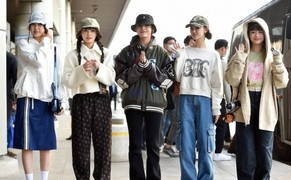By AsiaToday reporter Jina Koh – While the United Nations Security Council passed the resolution in March, which imposed tougher sanctions against North Korea following a series of nuclear and missile tests, many predict that the effectiveness of the sanctions will be questioned unless cash flow to the North is cut off.
Although China has recently tightened sanctions against the North, by freezing Hongxiang Industrial's assets for allegedly aiding North Korea nuclear weapons program and arresting more than 10 business executives for North Korea trade, but it is uncertain whether they will fully join sanctions against Pyongyang that lead to tangible results. While China seemingly took a major action against the North with U.S. cooperation, Chinese Premier Li Keqiang did not address new sanctions against the North, but only emphasized the need to resolve North Korea's nuclear provocations through dialogue during a keynote speech at the United Nations General Assembly on Wednesday.
There is also a possibility that Hongxiang Group, which has reportedly carried out imports and exports worth a total of $532 million in 2011-15 with North Korea, worked as a channel for transferring cash to the North from countries other than China. The Tokyo Shimbun reported Friday that the North Korean government ordered a company operated by an official related to Japan's Jochongnyeon, or pro-Pyeongyang federation of Korean residents in Japan, to transfer $150,000 in 2010 and designated an account of Hongxiang Group chairwoman registered in Hong Kong.
Apart from Hongxiang Group, there are still more potential cash flow channels. According to monthly data released by China's General Administration of Customs on Wednesday, trade between China and North Korea stood at US$628.29 million in August, up 29.9 percent from $483.35 million a year ago. In the figure, China exported $336.95 million worth of goods to the North in that month, up 41.6 percent on-year, and imported $291.34 million worth from the North, up 18.7 percent from a year before.
"After a joint analysis on North Korea's trade data for the past 18 months, we've found there is a considerable number of North Korean companies that are legally conducting trade activities with Chinese or Southeast Asian countries are either owned by or affiliated with sanction-targeted enterprises, that they practically work as channels to evade sanctions," the Asan Institute for Policy Studies in South Korea and the C4ADS research group in Washington said in a report released Monday.
Some claim that the cash payment from the U.S. to release detained Americans in Iran flowed into North Korea. During the U.S. Senate Banking Committee hearing on Wednesday, former U.S. Attorney General Michael Mukasey suggested that Iran could use the cash to buy nuclear weapons from "cash-starved" North Korea. The U.S. government is facing skepticism over its $1.7 billion cash payment to Iran to release detained Americans back in January. The U.S. government denied these allegations but if it's true, we should take note that the payment was in 'cash'.
Cash traded between countries are primarily used for terror or illegal fund. The U.S. diplomacy magazine Foreign Policy reported Tuesday that the payment to Iran was "all cash" and that cash transactions raise serious terrorism financing risks. According to the Financial Action Task Force, the Paris-based international body that sets global standards for preventing money laundering and terrorist financing, “the physical cross-border transportation of currency … [is] one of the main methods used to move illicit funds, launder money, and finance terrorism.”
As a result, cutting off the mass flows of cash into the North is the most effective measure to pressure the North. Dr. Emanuel Pastreich, professor at Kyung Hee University, pointed out that the possibility of North Korea's illicit cash flow is a "serious problem" in an interview with AsiaToday. He said, "Temporary measures cannot resolve the issue. While maintaining and strengthening the existing system, a new financial system should be set up."
"The North Korean regime was prepared for economic sanctions from the start. It may sound uncomfortable, but foreign pressure could rather strengthen the power of the North Korean government," he added.
#North Korea #sanction #cash flow #Hongxiang Group #Emanuel Pastreich
Copyright by Asiatoday
Most Read
-
1
-
2
-
3
-
4
-
5
-
6
-
7





















